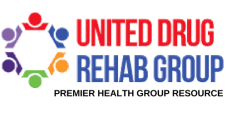Which Came First…The Anxiety or the Addiction?
Types of Disorders
40 million Americans suffer from an anxiety disorders and are more likely to become addicted to substances in order to cope with their disorder. Some common types of anxiety disorders include:
- Specific Phobias
- Social Anxiety Disorders
- Post Traumatic Stress Disorders
- Obsessive Compulsive Disorder
- Generalized Anxiety Disorder
- Panic Disorder
- Acute Stress Disorder
Most anxiety disorders are able to be treated; however, many people go day-by-day ignoring their illnesses. Some turn to alcohol or begin to rely on drugs to diminish their feelings of anxiety. Researchers have found that about 20% of Americans suffer from the combination of an anxiety disorder and substance abuse.
How Does it Happen?
There are three possibilities in which someone can suffer from both an anxiety disorder and substance abuse. The first possibility occurs when an individual develops an anxiety disorder and later on turns to substance abuse. Secondly, an individual can develop an anxiety disorder due to their current addictions to drugs and alcohol. The third scenario occurs when both the anxiety disorder and the substance abuse occur independently, but happen at, or around, the same time.
What Treatment is Best?
It has become a conflicting issue to treating co-existing disorders. Many who suffer from an anxiety disorder consult with a psychiatric doctor first; however, usually the therapist will redirect clients to a drug rehab facility to get help with their addictions first. The opposite problem occurs when counselors from a drug rehab center redirect clients to a therapist to get help with their anxiety disorders. Both methods did not work for either scenario. After many trials and errors, it has been concluded that treating both coexisting disorders at the same time works best. clients who were treated for both disorders not only showed improvement with their anxiety, but also had longer periods of sobriety.
Where to Get Treatment
United Drug Rehab Group offers a broad spectrum of services that can help those who suffer from an anxiety disorder and substance abuse. We understand that the co-existing disorders can be difficult to treat; however, at United Drug Rehab Group, we have everything you need to safely and effectively recover from both disorders. Contact United Drug Rehab Group now, and an intake coordinator will be happy to answer any questions in regards to what we have to offer. Our compassionate staff is highly experienced in treating clients who have co-existing disorders. We offer a dual diagnosis process that targets both the physical and psychological effects of co-existing disorders. It is our goal to bring comfort to all of our clients in an environment that they can call their “home away from home”. Don’t push your feelings of anxiety aside and turn to drug or alcohol consumption to feel better. You are not alone in this situation, and you don’t have to feel like it either. There are others in the same situation who are receiving the proper care that you should be getting. United Drug Rehab Group is a luxury facility that is a great place to start living your life, sober, healthy, and happy.


